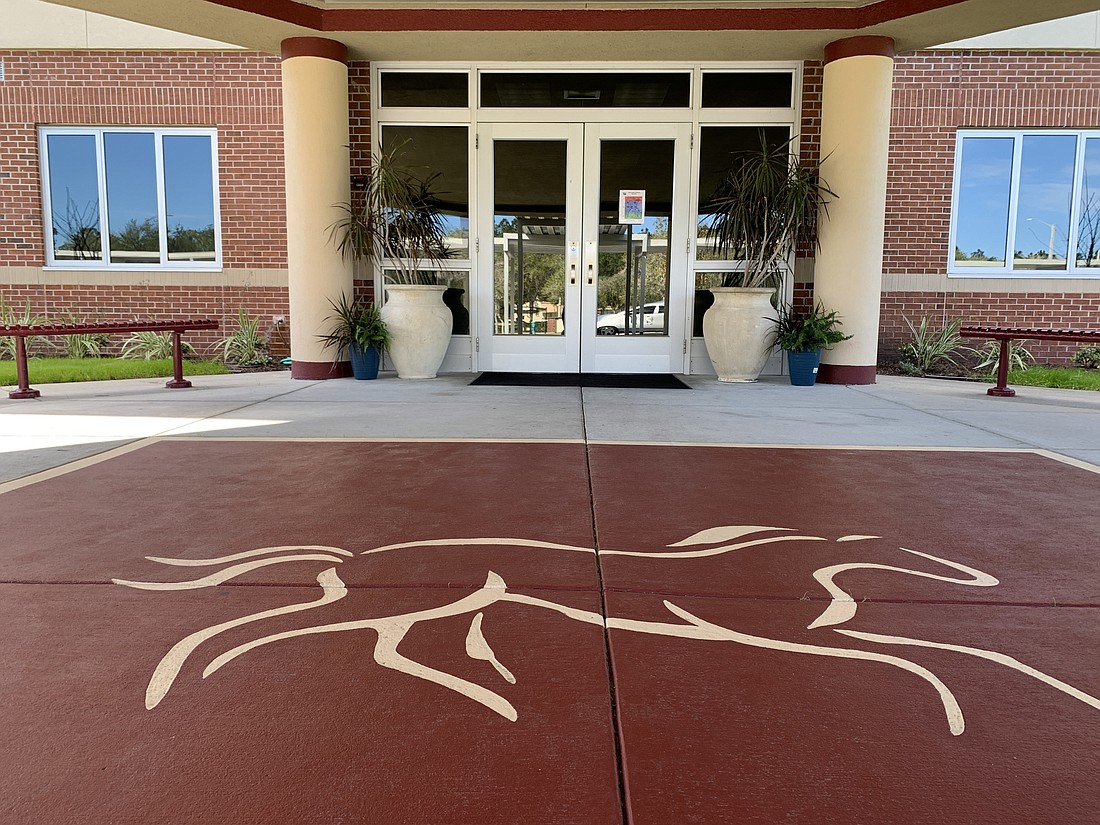- April 26, 2024
-
-
Loading

Loading

The Flagler County School District predicts overcrowding in local schools, and wants to double impact fees on new homes to pay for new school construction. Local building industry representatives are saying they don’t believe the district’s projections.
And the County Commission — which has the final say in the matter — doesn’t know who to believe, and opted during a meeting on Nov. 2 to delay a decision for up to 60 days.
“I really don’t understand why the builders are against this, because it is a pass-through, but I do understand that they believe the numbers are inaccurate,” County Commissioner Greg Hansen said. “Maybe those numbers need to be looked at a little closer.”
Echoing suggestions from locals who’d spoken earlier in the meeting, he suggested the commission table the impact fee proposal.
The commission is in an unusual position: Usually, an elected government board such as the School Board doesn’t need another elected board’s permission to raise impact fees, the one-time fees levied on new development to offset new homes’ effects on local infrastructure. The County Commission just raised the county’s own impact fees earlier this year.
"Maybe those numbers need to be looked at a little closer."
— GREG HANSEN, county commissioner
But the statewide regulations for increasing impact fees or adding new ones changed this year, and any increase above 50% over four years requires that the entity enacting the increase claim “extraordinary circumstances” to do so. The County Commission has to sign off on that claim.
The commission has been critical of the school district’s plans ever since the district proposed them. The school district hasn’t changed impact fees since 2004.
At the meeting Nov. 2, building industry representatives said they believed the district is overestimating the number of new homes that would end up housing children, given the county’s demographics, and overestimating how many of those children would land in public schools, versus private schools or charters.
“These aren’t people with kids in schools,” said Mark Langello, representing the Flagler County Home Builders Association. “These are your retirees who are coming here and paying cash. ... We think the growth in students is nowhere near what they’re projecting.”
Raising the fees, he said, will burden people at the bottom of the home-buying ladder. He said the Home Builders Association wanted the commission to table the proposal, and was prepared to sue if the commission approved it.
District representatives, speaking at the meeting, said the reason the district hadn’t raised impact fees earlier was that enrollment had stayed fairly flat, so an increase wouldn’t have been justified.
But that’s no longer the case: The district contracted out for a study on predicted population trends in the area, consulted with the Property Appraiser’s Office, and evaluated already-planned developments.
All indicate significant growth, and, therefore, more students. Meanwhile, the district has lost multiple funding streams since 2004, school district Coordinator of Planning and Intergovernmental Relations Patty Bott told commissioners at the meeting. Those sources of revenue had been 48% of the district’s funding in the past.
“The last 18 month is when that growth really hit us,” she said. “... We need the impact fee funds in order to build for the capacity that’s coming.”
School board member Colleen Conklin noted that the county’s comprehensive plan bars the approval of new developments if there’s no school space available.
She suggested that the School Board and the county and local cities meet periodically to discuss growth, as they had during the last significant population boom.
School Board member Jill Woolbright added that schools are costly to build, in part because they must be constructed to be able to withstand Category 5 hurricane winds so that they can be used as shelters.
From critics of the district’s numbers, she said, “The only thing I’m hearing is gut feeling.”
The district’s growth projections have been conservative, she said. The district is also in the process of rezoning, shifting students and moving sixth grade from elementary schools to middle schools in order to open up more student stations.
“We are doing everything we can do as a board to provide seats for students,” she said. “Students are coming, and we have used conservative numbers. The numbers are quite obvious. They speak, obviously, that they’re coming.”
Commissioner David Sullivan wanted to go ahead and vote, but other commissioners disagreed, and chose to table the proposal with a 60-day deadline.
Local real estate expert Toby Tobin and attorney Michael Chiumento both advised the commission to wait.
Commissioner David Sullivan wanted to go ahead and vote, but other commissioners disagreed, and chose to table the proposal with a 60-day deadline.